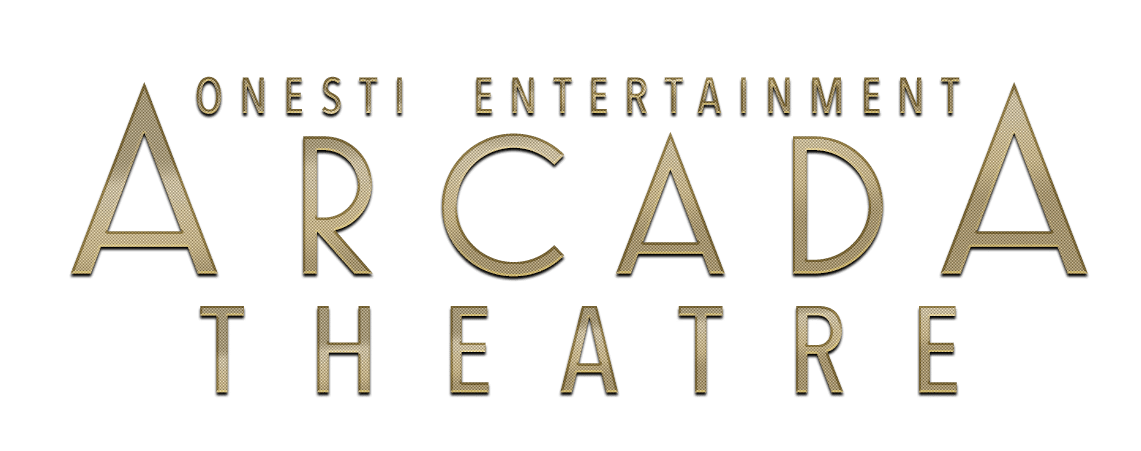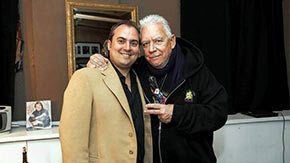Backstage with Ron Onesti:
Here’s to the heroes
For me, as it is with so many others, Memorial Day is a bittersweet celebration. It is a solemnly difficult day as we remember those who lost their lives defending this great country. It became much more bitter than sweet on the Memorial Day that came after the passing of my father, my hero, U.S. Army Sgt. Albert J. Onesti in 2012. But still, I march in the local Memorial Day Parade, thank all those guys in their Veterans of Foreign Wars (VFW) hats, civilian-salute those in uniform and high-five those walking around in camouflage T-shirts and pants.
Later, as I was getting ready for my barbecue, jamming to the Seventies classic rock station and proudly hanging my American banner of freedom, “Old Glory,” on the brick in front of my house, the Vietnam War anthem “We Gotta Get Out Of This Place” by the Animals came on the boombox.
I got to thinking about how much music has played a part in military efforts, and just my own recollections and perspectives about the songs and those who performed them.
For example, I didn’t really know who John Philip Sousa was until I became involved with the Arcada Theatre. He was a turn-of-the-century composer and conductor, and the father of band “marches.” Although he died in 1932, the Sousa Band did perform “Stars and Stripes Forever” at The Arcada in the late 1920s, a song which eventually came to be our national march.
One of my all-time favorite movies is “Yankee Doodle Dandy” starring James Cagney. It tells the story about composer George M. Cohan and how his patriotism was recognized by President Franklin D. Roosevelt, who awarding him the Congressional Medal of Honor. His songs “You’re a Grand Old Flag” and “Over There” were the songs that gave strength to American soldiers in World War I.
Growing up in a World War II household, I was surrounded by war stories and the music of the era. I knew about that Big-Band sound from Benny Goodman and Glenn Miller. “In The Mood,” “Tuxedo Junction” and “String Of Pearls” were songs to which my mom and dad regularly hummed and danced. The story of how Miller disappeared over the English Channel on his way to entertain American troops in France was one I heard on a weekly basis.
I was so lucky to have worked with Mickey Rooney, hosting his 89th birthday at The Arcada. He was with me for several days, making appearances and being interviewed to promote his upcoming show. One of my fondest memories is when I took him to a meeting of Italian-American war veterans. I went to pick him up at the hotel and he walked out of his room with an actual “War Veterans” cap on. He actually traveled with it!
We arrived at the meeting to a hero’s welcome. There were about 200 former soldiers, some in their 80s, who stood at attention and saluted Mickey as we walked in. It was very reverent and emotional.
The commander of the veterans post welcomed Mickey and thanked him for his service in World War II. “Mickey, what you and your Hollywood friends did for the soldiers overseas, entertaining them and keeping up their morale, was nothing short of heroic,” the commander said.
At that statement, Mickey jumped out of his seat. “Wait a minute,” he said. “I served in the Army under Patton. I wasn’t telling jokes and singing songs; I was fighting, I was in the foxholes, just like all you guys.” He then folded back the lapel of his jacket to display his Bronze Star he received for meritorious service in the war. A quiet but very noticeable gasp filled the room. “I lost friends and I saw a lot of death out there. That is why I am such a proud American. That is why I came here tonight. To thank all of YOU! You are the heroes, and we veterans are who saved America.”
After a moment of silence, the room erupted into a thunderous applause and a standing ovation.
Then in the late 1950s, Elvis was drafted on what his fans called “Black Monday.” Over the years, as I have put on countless Elvis tribute shows, the performers would regularly don a camouflage outfit, as if to define Elvis as a military entertainer. But he really didn’t perform or record much during that time, except for a handful of gospel songs. He came away from his Army experience with a Good Conduct Medal and his future wife, Priscilla, whom he met in Germany.
The music surrounding the Vietnam War was mainly protest songs, like the Animals’ tune I described earlier. Bob Dylan’s “Blowin’ In The Wind” was one of the first in 1963, and John Lennon and Yoko Ono closed out the decade with “Give Peace A Chance” in 1969. Much of the Woodstock Music Festival in 1969 was anti-war themed, and many of the artists I have worked with who were there told me it was a common thread of the music of the day.
My good buddy Tony Orlando and his backup singers, Dawn, came out with “Tie A Yellow Ribbon” in 1976, but the song (and the artist) became a symbol of hope for returning troops in the 90s’ Gulf War — the Desert Storm and Desert Shield deployments. “I am so proud to be a part of it,” Tony told me recently. “Every town I go to, I try and visit veterans. Many welcome me with yellow ribbons tied onto trees from the airport to my hotel!”
There are many others, but these are the things I think about during Memorial Day and Veterans Day, especially. The power of music can be defined in so many ways. But I cannot personally fathom the amount of courage and strength, both physical and mental, our men and women in the military must possess just to get through it all. The personal sacrifice, time away from their families, the impending danger they are surrounded by 24 hours a day.
There is another of my favorite songs titled “Here’s To The Heroes” by Mario Frangoulis. One of the sequences goes like this:
“Here’s to the heroes
Who change our lives.
Thanks to the heroes
Freedom survives.”
Pretty much sums it up.
• Ron Onesti is president and CEO of The Onesti Entertainment Corp. and The Historic Arcada Theatre in St. Charles. Celebrity questions and comments? Email [email protected].

